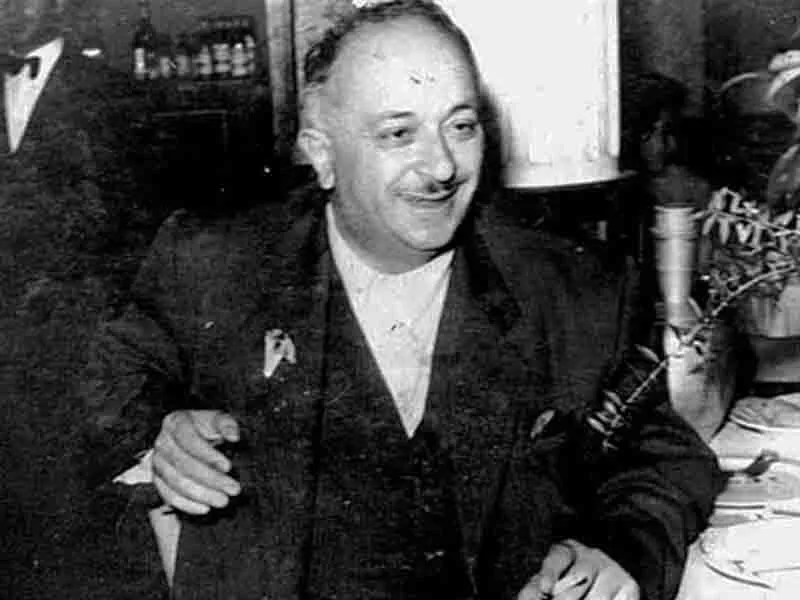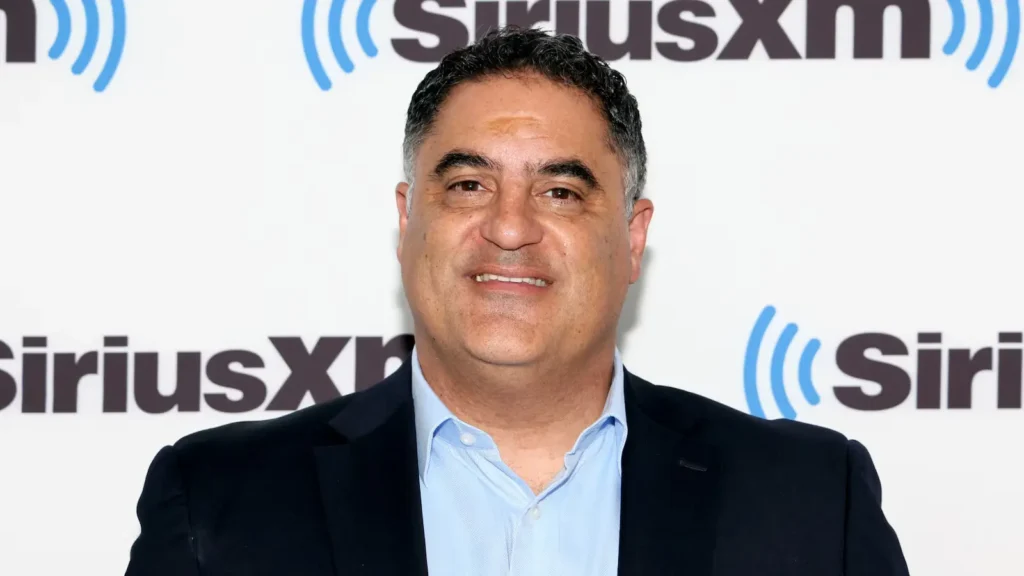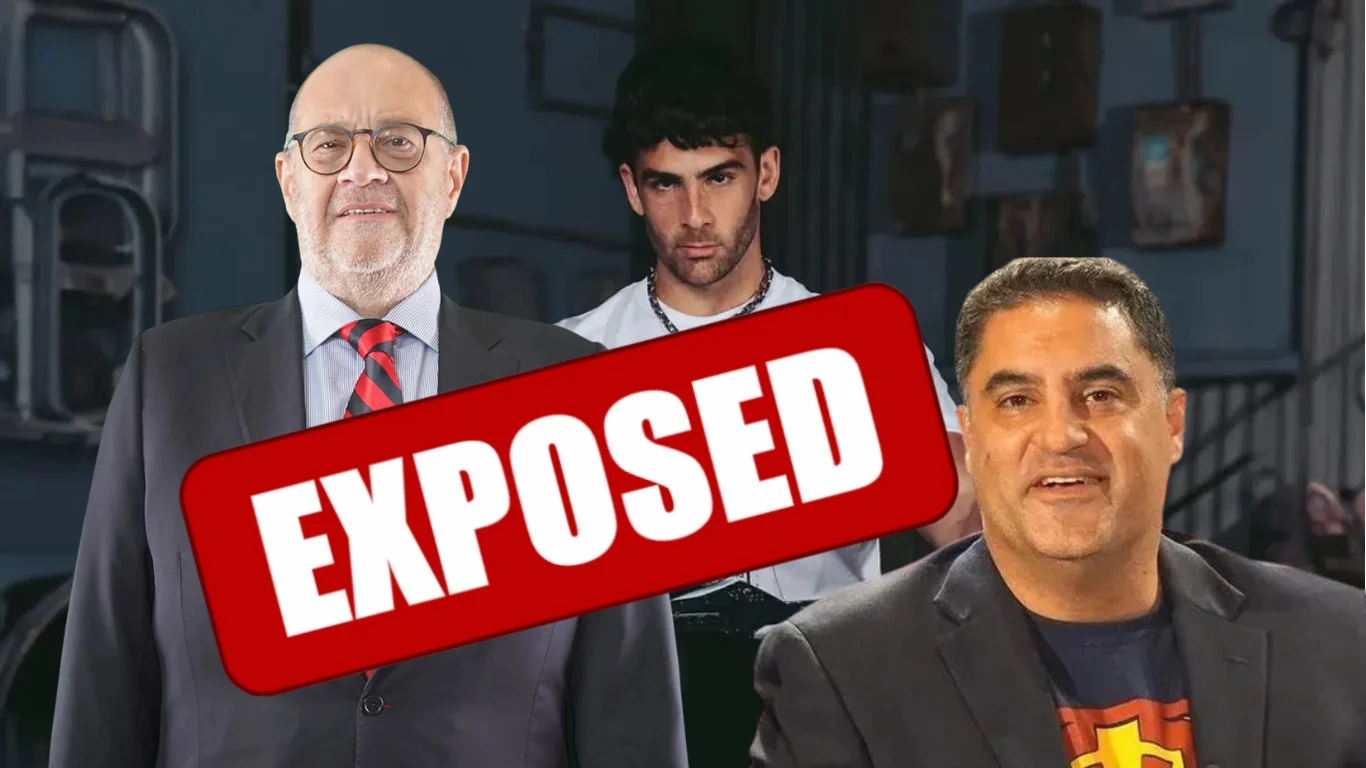Hasan “HasanAbi” Piker has built a lucrative brand as a socialist and champion of “the oppressed,” especially Palestinians. Yet the foundations of his family fortune and influence trace back to some of the darkest chapters in modern Middle-Eastern history, chapters the family has never fully confronted. This article unpacks the ways in which three generations of Pikers (and their in-laws the Uygurs) have leveraged other peoples’ tragedies while marketing themselves as progressive truth-tellers.
In this article we will cover:
- The Sabancı Fortune Built on Confiscated Armenian Wealth
- Enter Hasan Piker’s Father, Mehmet Behçet Piker
- From the Corporate World to Politics
- Cenk Uygur: From Open Denial to “Soft Acknowledgment”
- HasanAbi: Luxury Socialism in the Family Tradition
- The Piker Family: Opportunism Draped in Activism
The Sabancı Fortune Built on Confiscated Armenian Wealth
The Piker story intersects with Sabancı Holding – one of Turkey’s largest and most influential conglomerates, with a diverse portfolio spanning various sectors.
historical records indicate that Hacı Ömer Sabancı, the founder of Sabancı Holding, benefited from the confiscation of Armenian properties following the Armenian Genocide.

After relocating to Adana in the early 1920s, Sabancı began his career as a cotton picker and later became a broker for cotton harvesters. During this period, the Turkish government encouraged the seizure of properties and businesses belonging to deported or massacred Armenians. Sabancı participated in this process, acquiring assets that had been confiscated from Armenians
This accumulation of wealth laid the foundation for the Sabancı family’s future enterprises. The family’s initial capital was significantly bolstered by the acquisition of Armenian properties, which played a crucial role in establishing their business empire.
The seizure of Armenian property after the genocide is well documented in scholarly works such as Confiscation and Destruction: The Young Turk Seizure of Armenian Property by Uğur Ümit Üngör and Mehmet Polatel, which explains in detail how the assets were taken and who benefited.
In 1967, following Hacı Ömer Sabancı’s death in 1966, his sons consolidated the family’s business ventures under the umbrella of Hacı Ömer Sabancı Holding A.Ş., commonly known as Sabancı Holding
Enter Hasan Piker’s Father, Mehmet Behçet Piker

In the early 1980s, Mehmet Behçet Piker – Hasan Abi’s father – joined Sabancı Holding and began climbing the company’s corporate ladder. Over the next 24 years he rose to Vice-President, served as Ankara Coordinator and sat on the boards of several Sabancı subsidiaries, accumulating significant wealth and forging close ties with Turkey’s business and political elite.
Although Mehmet joined decades after Hacı Ömer’s death, every promotion, stock option, and board seat he enjoyed existed because the conglomerate’s original capital had been amassed through the expropriation of Armenian property. In that sense, his entire corporate career represents an indirect dividend from genocide-linked wealth.
From Boardroom to Party Politics
After stepping down from Sabancı, Mehmet Behçet Piker resurfaced in December 2019 as one of the founding signatories of Gelecek Partisi (Future Party). Led by former Prime Minister Ahmet Davutoğlu, the party brands itself as a conservative-reformist counterweight to President Erdoğan’s ruling AKP.
Davutoğlu had flirted with pluralist symbolism before. In 2014 he appointed Armenian-Turkish columnist Etyen Mahçupyan his chief adviser on democratization—the first Armenian to hold such a post in modern Turkey. Mahçupyan “retired” six months later on reaching the official civil-service age limit, but Reuters and other outlets noted that his departure closely followed public remarks in which he agreed the 1915 massacres constituted genocide.
No public record shows Mehmet Behçet Piker taking a position on the Armenian Genocide, leaving his personal stance unknown. His son, Hasan, likewise avoids direct denial, but has on occasion downplayed its religious dimension.
The religious angle matters. On 14 November 1914 the Ottoman Sheikh-ul Islam issued a fatwa declaring jihad against the empire’s “enemies of Islam,” and Interior Minister Talaat Pasha privately spoke of “liquidating … the indigenous Christians.” Mainstream scholars therefore describe the genocide as fueled by a blend of ethnic nationalism and militant Islamist fervor, context that Hasan’s framing tends to omit.
Cenk Uygur: From Open Denial to “Soft Acknowledgment”

If Mehmet shows how business elites cash in, Cenk Uygur, Hasan’s uncle and co-founder of The Young Turks (TYT), shows how media figures do the same.
Uygur’s record on the Armenian Genocide has zig-zagged for decades. In 1991, while at the University of Pennsylvania, he wrote a Daily Pennsylvanian column denying the genocide. In 2016 he walked that back, saying:
My mistake at the time was confusing myself for a scholar of history, which I most certainly am not. I don’t want to make the same mistake again, so I am going to refrain from commenting on the topic of the Armenian Genocide, which I do not know nearly enough about.
Even after this “no-comment” stance, Uygur kept the TYT name, a choice widely criticized because “Young Turks” was the movement that planned the genocide. Uygur says the name now means rebellious progressivism, not Ottoman politics.
Critics aren’t convinced. They note that dropping the name would cost him brand equity, while keeping it costs him nothing. In short, the retraction costs him nothing, while the controversial brand continues to monetize progressive audiences.
Union-Busting Accusations at TYT
This topic is a bit outside the main story, but it matters. In February 2020 the crew at The Young Turks moved to join the IATSE union. Cenk Uygur urged them not to, saying TYT couldn’t afford a contract.
Staff later said he withheld bonuses and even fired producer Jacorey Palmer for supporting the drive ,charges Uygur denies. Left-leaning outlets such as In These Times and The New Republic slammed his stance as “union-busting” hypocrisy from a host who calls himself pro-labor.
Uygur’s controversies don’t stop there. In December 2019, during the special election for California’s 25th District, Senator Bernie Sanders endorsed him, then pulled the endorsement the next day after old sexist, racist, and homophobic comments by Uygur resurfaced. I’ll dig deeper into his record in future articles.
HasanAbi: Luxury Socialism in the Family Tradition
Hasan “HasanAbi” Piker is the newest face in the Piker–Uygur clan. Like his elders, he leans on left-wing talk because it sells, serving resentful audiences the lines they want to hear. Then he cashes in through sponsorships and merch. Same family habit: preach justice, bank the cash. There was even a song dedicated for him:
Piker shouts “kill landlords,” yet in August 2021 he bought a $2.7 million West Hollywood house. On stream he flashes $1k sneakers while lecturing viewers about consumerism.
His career also rides family rails: in 2013 he started as an intern, and later host, at his uncle’s network, The Young Turks. He pushes socialist and pro-Palestinian lines while leaning on a brand name linked to the Armenian Genocide, another telling disconnect.
Over the years Piker was involved in numerous controversies. Here are some of his best:
- “America deserved 9/11” & Dan Crenshaw rant (Aug 2019) – On Twitch he mocked Rep. Crenshaw’s combat injury and said “America deserved 9/11,” then got a 1-week ban and issued a partial apology but later defended his comment.
- “Cracker” Twitch ban (Dec 2021) – Repeated the slur on stream; Twitch banned him for a week.
- Rick Scott death comment (Mar 2025) – Said, “If you cared about Medicare fraud, you would kill Rick Scott.” Twitch gave him a 24-hour suspension.
The Piker Family: Opportunism Draped in Activism
While Hasan Piker brands himself as a socialist firebrand and pro-Palestinian advocate, a closer look at his background reveals a striking contradiction. His family has long operated within Turkey’s elite circles. His father, Mehmet Behçet Piker, spent decades working at Sabancı Holding, a conglomerate whose foundational wealth is historically tied to the expropriation of Armenian assets during and after the genocide. Though Mehmet didn’t directly participate in those early events, he certainly benefited from the legacy of a system built on dispossession.
Meanwhile, the family’s political alignment through Gelecek Partisi, where Mehmet was a founding member, has done little to confront that past. Beyond appointing an Armenian adviser for optics, the party has steered clear of officially recognizing the genocide.
Uncle Cenk Uygur first denied the genocide, later walked it back, yet still clings to the TYT name that offends Armenians. That choice keeps the brand strong and the money flowing.
All the while, Hasan continues to perform radical politics for his audience, portraying himself as a voice for the oppressed. But the truth is more cynical: the Piker family has built its relevance by leveraging systems of exploitation and tragedy, then rebranding themselves as progressive thought leaders. It’s not activism, it’s opportunism.

